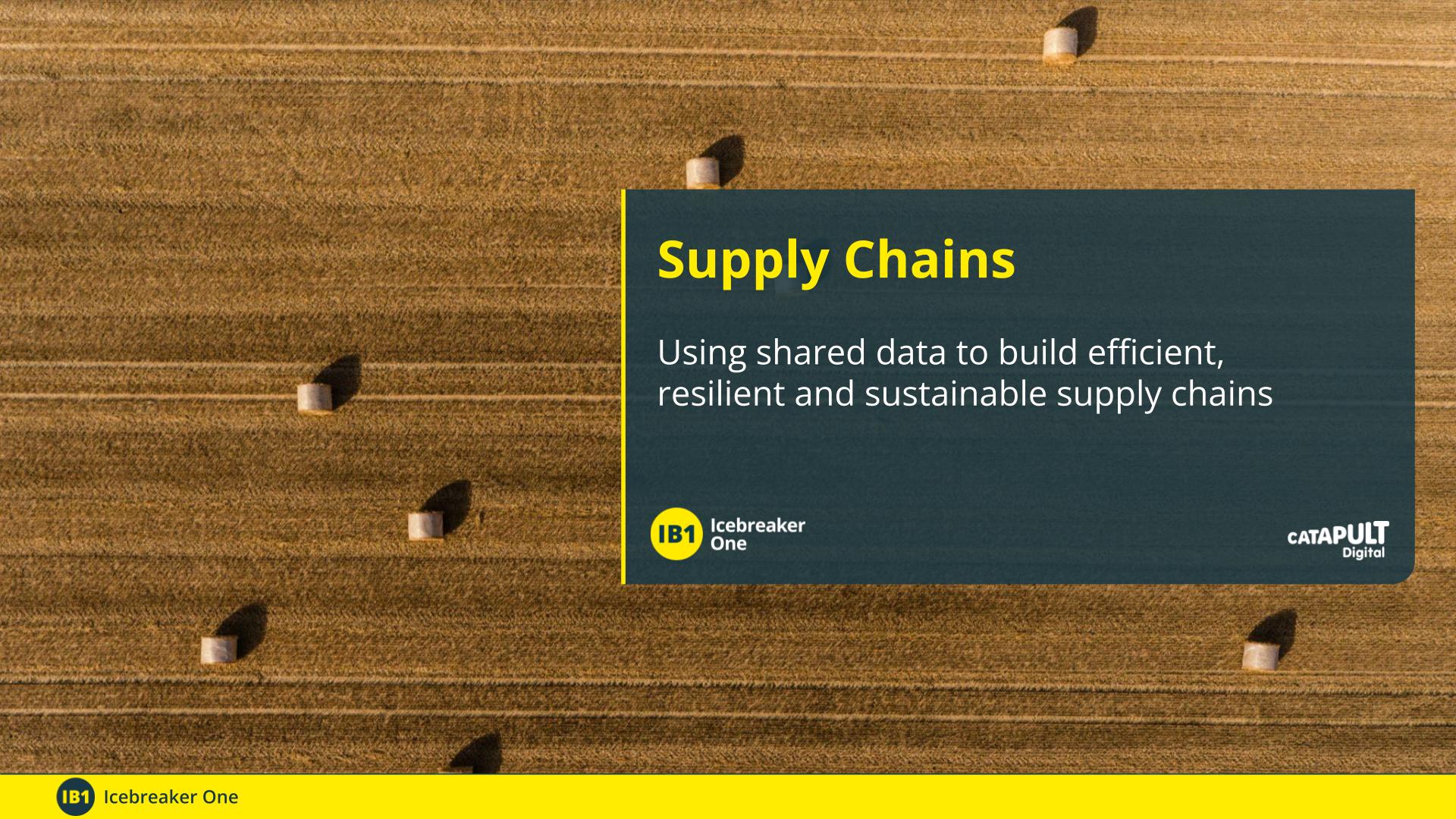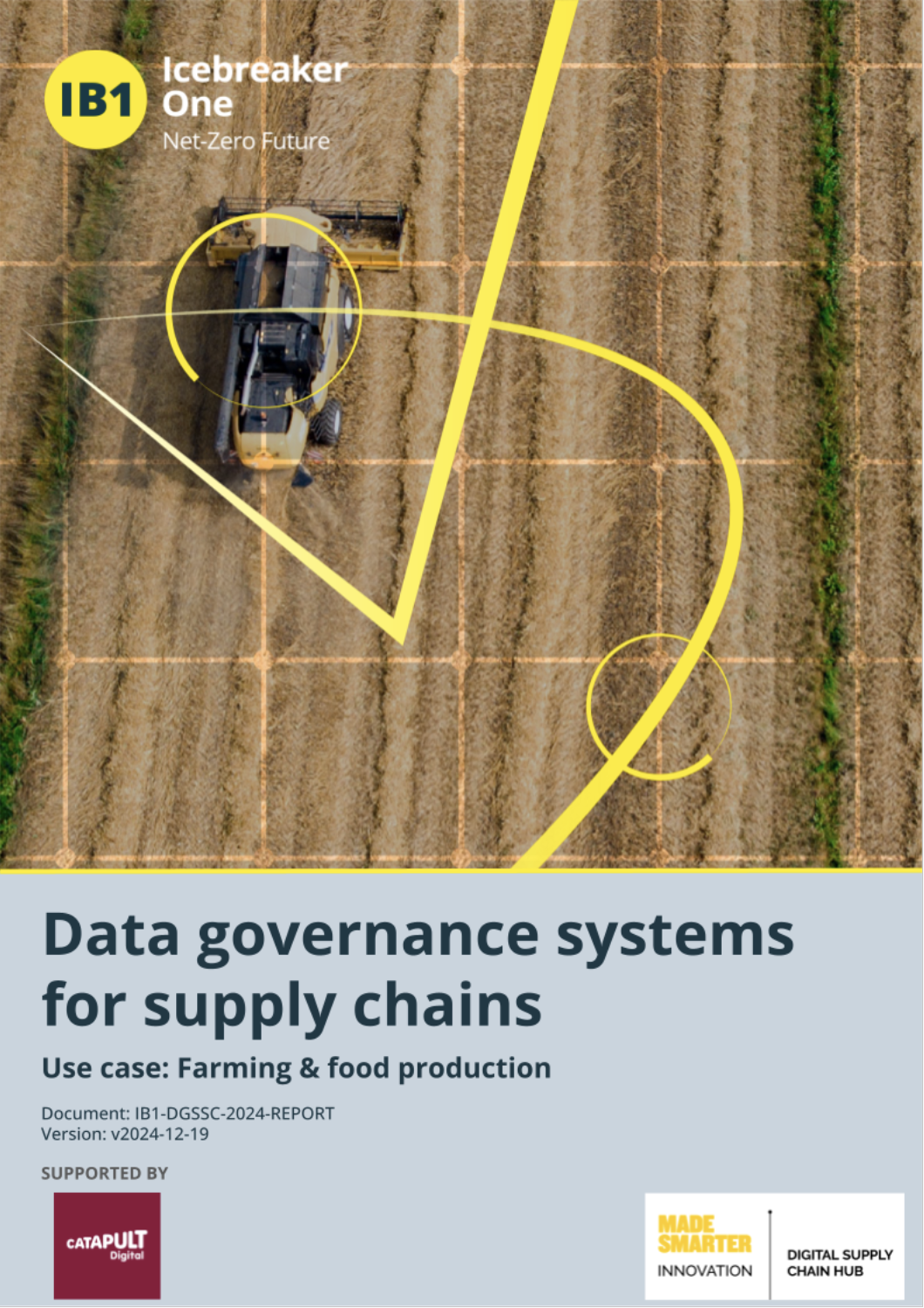Using shared data to build efficient, resilient and sustainable supply chains
Icebreaker One collaborated with Digital Catapult’s Digital Supply Chain Hub to help transform UK manufacturing through data-enabled supply chains. A key component of this work was addressing the data governance challenges of information exchange in digital supply chains.
The timeliness of the project is reflected by the fact that supply chain leaders and businesses across the country are grappling with regulatory hurdles, a pressure to decarbonise, and cyber-threats to their operations. Our work will support the development of a robust data sharing governance that builds trust between organisations and produces more efficient, resilient and sustainable supply chains.
Our use-case centric approach focused on Food Supply Chains, with the goal of enhancing data transparency, aligning with regulatory frameworks and unlocking green financing for farm management.
Advisory Group
Icebreaker One convened an Advisory Group of industry experts that accurately represent stakeholders from across the Food Supply Chain. This is also aligned with Digital Catapult’s recognition of the need for collaboration between businesses and technology leaders to mitigate risk in supply chains.
Outcomes of project
Over the course of the project’s four-month duration:
- Stakeholders saw the value in using assurable supply chain data to de-risk investment and collaborated to inform the solution
- The use case-based approach aligned value, enabled quicker decision-making and fostered engagement across stakeholder groups
- Technology developed for other sectors can be used to govern supply chain data and maximise future interoperability
Future work
More work is needed in order to:
- Establish an ongoing governance function to identify, prioritise and collaboratively design data sharing schemes, as well as communicating the value of market creation
- Secure wider involvement from organisations across the supply chain ecosystem and ensure all stakeholder voices are heard
- Integrate more partners into a supply chain governance technical ecosystem
If you have thoughts about trusted supply chain data, please get in touch via: icebreaking@icebreakerone.org
You can read our recommendations and full report below.
Recommendations
The development of a robust data governance framework for the Digital Supply Chain Hub ecosystem has the potential to transform UK agriculture by promoting trust, enhancing financial accessibility, and driving sustainability. It aligns with net-zero ambitions while supporting the resilience and productivity of UK farms, ultimately contributing to a more secure and sustainable food supply chain.
In order to fully implement a data governance framework we recommend to:
- Validate assurance signals: UK arable farmers and their supply chain actors must be engaged in order validate assurance signal feasibility.
- Establish a full governance framework: An Advisory Group must continue to be convened to ensure the co-design and implementation of a market-wide solution, which addresses specific user, technical and non-technical requirements.
- Onboard demonstrator partners: Relevant partner organisations from the supply chain must be brought together to deliver a demonstrator that shows assurable data flowing from farm to bank.
- Co-design implementation of a technical demonstrator: Relevant partner organisations must co-design and establish the data infrastructure, including assurance metadata records.


